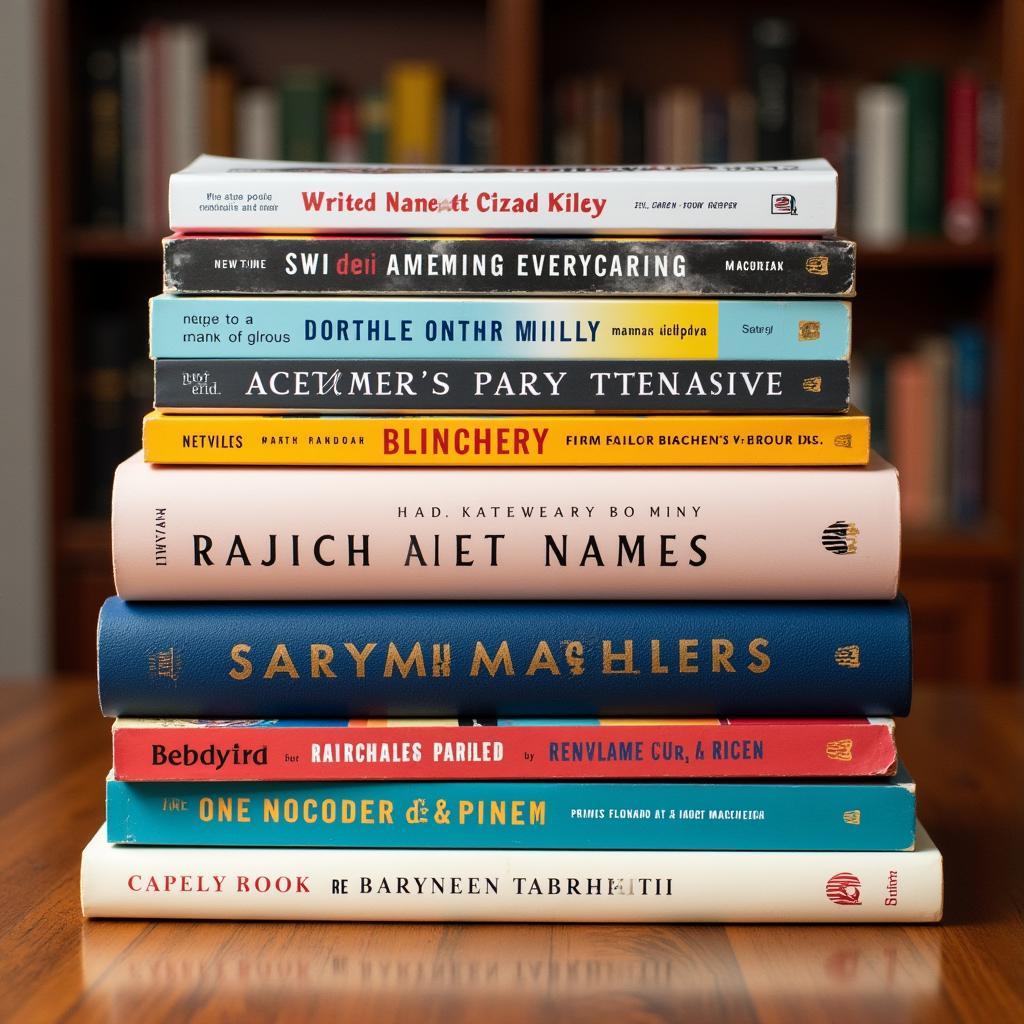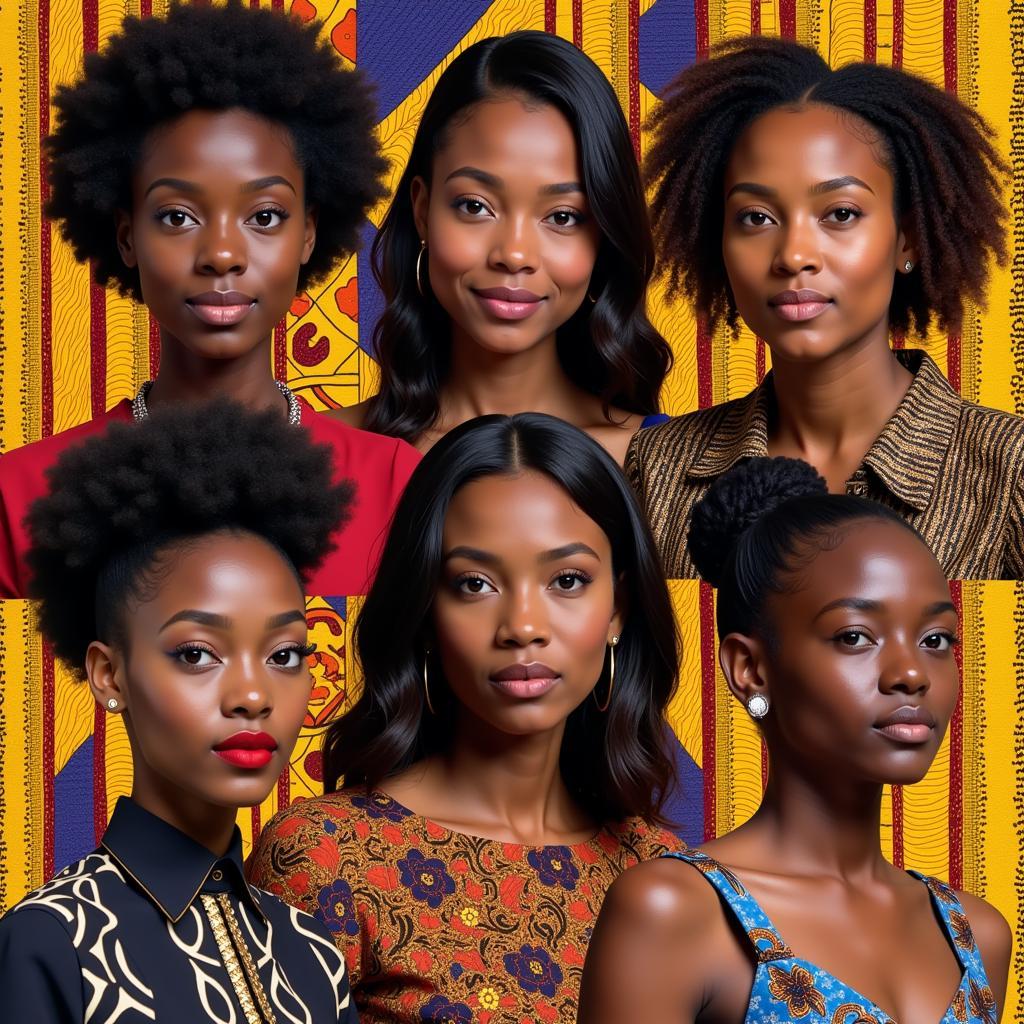A New Generation: Exploring 21st Century African American Writers
The landscape of American literature has been indelibly shaped by the voices and stories of African American writers. The 21st century, in particular, has witnessed a resurgence of powerful narratives exploring themes of race, identity, and social justice. These contemporary voices, fueled by historical legacies and present-day realities, offer fresh perspectives and challenge conventional literary boundaries. This exploration delves into the vibrant tapestry of 21st century African American writing, highlighting its significance and impact.
 Contemporary African American Literature
Contemporary African American Literature
The Power of Representation: Amplifying Diverse Voices
One of the defining features of 21st century African American literature is its commitment to amplifying diverse voices within the Black community. Authors are moving beyond monolithic representations, exploring the intersections of race, gender, sexuality, and class. This inclusivity allows for a more nuanced and authentic portrayal of the Black experience, challenging stereotypes and fostering empathy.
For instance, writers like Jacqueline Woodson, through her young adult novels, tackle complex issues of race and sexuality with sensitivity and honesty. Similarly, authors like Kacen Callender, a transgender writer, bring forth narratives that explore gender identity and the complexities of belonging within the African American community.
Reclaiming History, Reimagining Narratives
21st century African American writers are engaging with history in profound ways, excavating hidden truths and reclaiming lost narratives. They delve into the legacy of slavery, segregation, and systemic racism, offering fresh perspectives on these historical traumas and their lasting impact.
Colson Whitehead’s Pulitzer Prize-winning novel, “The Underground Railroad,” is a prime example. Whitehead reimagines the historical underground railroad as a literal subterranean network, forcing readers to confront the brutality of slavery in a visceral and unforgettable way. This reimagining of history, through fiction, allows for a deeper understanding of the past and its resonance in the present.
Navigating Identity in a Complex World
The exploration of identity is central to 21st century African American literature. Authors grapple with the multifaceted nature of Blackness in a society grappling with racial injustice and systemic oppression. They examine the complexities of code-switching, microaggressions, and the constant negotiation of one’s identity in predominantly white spaces.
Jesmyn Ward, a two-time National Book Award winner, masterfully captures the emotional and psychological toll of racism and poverty on Black lives in her works like “Salvage the Bones” and “Sing, Unburied, Sing.” Her writing delves into the resilience of the human spirit while confronting the harsh realities faced by many in the African American community.
A Call to Action: Literature as a Catalyst for Change
Beyond storytelling, 21st century African American writers view literature as a platform for social commentary and a catalyst for change. Their works often address pressing social issues, sparking conversations about racial injustice, police brutality, and mass incarceration.
Ta-Nehisi Coates, in his seminal work “Between the World and Me,” delivers a searing indictment of racism in America. Written as a letter to his son, the book is both deeply personal and unflinchingly honest in its exploration of the realities of being Black in America. Coates’ work sparked national dialogue about race and ignited a new wave of activism.
Looking Ahead: The Future of African American Literature
The future of African American literature in the 21st century is brimming with potential. New voices are emerging, pushing boundaries and challenging conventions. The digital age has provided platforms for self-publishing and online literary communities, further amplifying these diverse perspectives.
From speculative fiction to experimental poetry, the landscape of African American writing continues to evolve. As we move forward, it’s essential to continue supporting and celebrating these writers who offer insightful reflections on the human experience, challenge societal norms, and inspire meaningful conversations about race, identity, and justice.
Frequently Asked Questions about African American Writers of the 21st Century
- Who are some of the most influential African American writers of the 21st century?
Some influential writers include Colson Whitehead, Jesmyn Ward, Ta-Nehisi Coates, Jacqueline Woodson, and Kacen Callender.
- What are some common themes explored in contemporary African American literature?
Common themes include race, identity, social justice, family, history, trauma, resilience, and the Black experience in America.
- How has the digital age impacted African American literature?
The digital age has created new avenues for publishing, reaching wider audiences, and fostering online literary communities.
- Where can I find more information about contemporary African American writers?
Literary magazines, online journals, book reviews, and academic resources offer insights into the works of these authors.
- Why is it important to read works by African American writers?
Reading diverse voices broadens perspectives, fosters empathy, and deepens understanding of the complexities of the human experience.
Need More Information?
For inquiries or assistance, please reach out to us at:
Phone Number: +255768904061
Email: kaka.mag@gmail.com
Address: Mbarali DC Mawindi, Kangaga, Tanzania
Our dedicated customer support team is available 24/7 to assist you.


